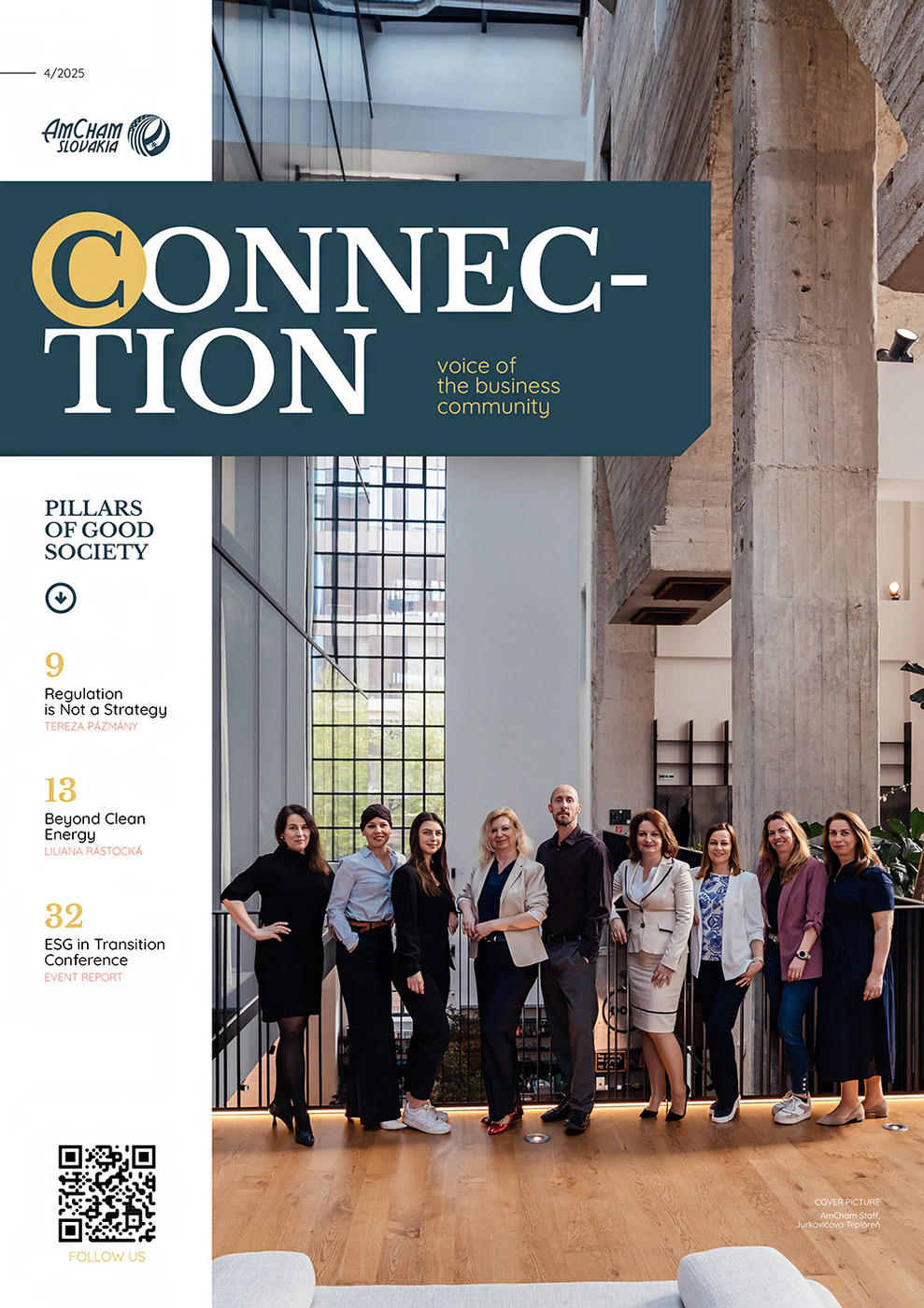In Slovakia and beyond, these pressures are pushing the boundaries of sustainability. Are we at a breaking point? Almost, but there is still time to act and reverse the course. With smarter use of data and investments, a stronger focus on prevention, a shift in mindset towards genuine collaboration and a willingness for Europe to once again become competitive, we can build healthcare systems that are both resilient and sustainable.
Purpose-Led Collaboration Is Needed More Than Ever
True collaboration means more than just working together and sharing logos on websites, it means aligning around a shared purpose and agenda, built on trust. I believe the future of healthcare depends on how well all collaborating partners harness our collective strengths, capabilities and communication channels to drive innovation at scale.
As the leading pharmaceutical company in Slovakia, Novartis embraces this responsibility. If we don’t role model sustainable collaboration, who will? Too often, I see the industry standing on the sidelines complaining and questioning why more isn’t being spent on medicines. Instead, we should be asking: how can we help the whole system (governments and citizens) recognize the value of investing in health and what can we (the industry) do to make that value clearer?
At Novartis Slovakia, we actively partner with government, medical institutions and academia. We support projects that generate evidence and analyze data to identify the country’s most pressing healthcare needs. We also play a key role in conducting clinical trials that bring future innovations to Slovak patients. Alongside our peers in the local EFPIA (AIFP) industry association, we work together to ensure Slovak patients have timely access to the latest treatments. But we know there’s still much more to be done.
Health Systems Don’t Fail For Lack of Data
But they do for lack of action on it. Sharing data across stakeholders can illuminate the most urgent opportunities and can help shift the perception of healthcare spending from a cost to an investment in society’s future. This applies to both prevention, by avoiding costly complications later, and to innovative treatments that improve outcomes and keep people active and productive in society.
Data can also help us identify inefficiencies: unnecessary appointments, prolonged hospital stays, unused medicines, or low-value items that could be funded out of pocket by citizens rather than paid for by the state. Addressing these issues can free up resources and improve sustainability but it requires time, trust and a willingness to share – then a commitment to make choices.
Move from Sickness to Prevention
We need to evolve beyond a treatment-focused approach to healthcare. By investing in prevention and public health through awareness campaigns and screening programs we can reduce the risk of more complex and costly health challenges as populations age. Shifting from a reactive to a proactive system means prioritizing early intervention, preventive care and tackling the underlying causes of illness. This approach not only improves overall well-being and reduces the burden of chronic diseases, but also delivers better health outcomes, lowers healthcare costs and fosters healthier, more productive communities that contribute to economic growth.
For the pharmaceutical industry, a strengthened commitment to prevention can drive proactive patient identification and early diagnosis. This also importantly signals a meaningful reputational evolution, from being viewed as short-term providers to trusted partners in reimagining healthcare.
Europe Must Return to Being Competitive
Even if we solve all of the above, policy in Europe, including Slovakia, is currently stifling progress. Regulatory delays and fragmented policies are leading to geographical health inequalities. If Europe cannot become more competitive in providing access and rewarding innovation, the stark reality is that biopharma investment and patient access to medicines will deteriorate at an accelerated pace, as other regions become more attractive. As citizens, we all have a stake in restoring Europe’s leadership in science and innovation, we need political courage to critically assess whether current policies are designed to delay innovation and limit spending, or to recognize scientific advancement and improve health outcomes.
So, Can Healthcare Be Sustainable?
Yes. But it will take collaboration and an active willingness to find solutions to solve for the current unsustainable environment in Europe and Slovakia, and the prioritization of smart healthcare investment choices across the system.
Samuel Hollis, Country President, Novartis Slovakia




Follow us